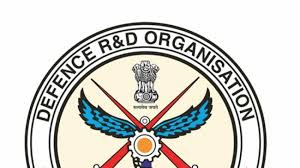“India Should Aim at Becoming State-of-Art Technology Developer”
By IAR DeskHighlighting the importance of self-sufficiency in defence technology, Dr Reddy emphasized upon the need for joining hands with the academia in conducting focused research in identified areas.

New Delhi: Offering an in depth insight into the role of technology in National Security Dr. G. Satheesh Reddy, Secretary, Department of Defence R&D and Chairman, DRDO today said that India should step out from being a technology follower and should work towards becoming State-of-Art Technology developer in order to emerge as a leader in futuristic defence systems.
Dr. Reddy was delivering a lecture on ‘Technology for National Security’ at the Institute for Defence Studies and Analyses. His lecture was a part of the Eminent Persons’ Lecture Series on issues of National Security.
Highlighting the importance of self-sufficiency in defence technology, Dr Reddy emphasized upon the need for joining hands with the academia in conducting focused research in identified areas. The academia, R&D institutes and the industry should work in close tandem to create an international market for indigenous State-of-Art technologies, he said.
Dr Reddy said that DRDO has been working hard on numerous fronts. Be it a diverse range or missiles, or tanks like Arjun Tank or Tejas Light Combat Aircraft or nuclear submarine like Arihant, DRDO is working on all.
Commenting on the changing war and battlefield scenario, Dr Reddy observed that Technologies and materials used in defence systems are undergoing a rapid change. The manned systems are becoming unmanned and unmanned systems are giving way to autonomous systems.
The organisation is working on several futuristic technologies, starting with materials. Most of the materials that the country needs for its defence systems and weaponry are being indigenously produced, Dr Reddy said.
Earlier Director General IDSA, Amb. Sujan R. Chinoy in his welcome address while lauding the contributions of DRDO, said that the organization has enabled India to emerge as a technology developer instead of being a technology follower.
Comments on the article: Russia’s growing engagement with Pakistan – should India be worried?
PLEASE POST ON THE RIGHT PLACE AS THE ABOVE ARTICLE HAS NO BUTTON FOR POSTING COMMENTS. MANY THANKS
Very topical issue and well analyzed but it has an over focus on just one area of engagement between Russia and Pakistan viz military supplies. As hinted in the final para of the article, there are several other dimensions of the growing bilateral engagement with most likely inclusion of China as an additional threat.
The supply of Pantsir S 1 anti missile/aircraft and T-90 tanks may not make Pakistan militarily stronger than India and one may also justify Russian action out of its economic compulsions, but these are definitely not going to be used for counter terrorism and anti drug operations. So, the condition of their non use against India is meaningless. After all, F16 was also used against India recently.
Even if India has to use its bigger defence budget and hard currency reserves to buy more weapons from Russia (if these are not really needed or are not the best available) just to stop Russia from selling superior technology to Pakistan, this itself should be a major concern for us. This strategy of India needs a careful assessment vis-a-vis other options. It may, for example, exert more pressure on financially pressed Russia if we stop buying from them.
The answer to whether we should worry from Russia-Pakistan engagement could lie in whether and to what extent we need Russia in today’s time. We may no longer need them to meet our military requirements or to counter international pressure. It also does not seem to be an attractive market for our exports or source of investments. If we have found more useful partners, we are bound to see erosion in our earlier bonds with Russia. After all, we can not play ball with everyone at the same time.
It seems that relations of Russia with Pakistan have grown due to our moving away from them as well as Russia’s assessment that they can use Pakistan better than us in having a stronghold in the region. Their military cooperation agreement of Nov 2014 specifically mentions Afghanistan. Thirty years ago, Russia lost out in Afghanistan and eventually lost control over its own Islamic states due to Pakistan’s role and support to US operations. Now that US withdraws from Afghanistan, Russia will be happy to use Pakistan to square off the game.
We failed to take Russia on board firmly in our development initiatives in Afghanistan and maybe also in Iran. Now, as the Talibans come back with everyone’s support, we stare at the prospect of losing any good will or control that we created with the Afghan Govt (and the Afghan people?) and all our aid money going down the drain. One would wonder why alarm bells did not ring in MEA and PMO when Russia-Pakistan
Military Cooperation Agreement of Nov 2014 explicitly mentioned “sharing similar views on developments in Afghanistan” and “exchanging information on politico-military issues”? It was clearly much beyond a “bilateral cooperation” and a direct threat to our supremacy ambitions and objectives in South Asia.